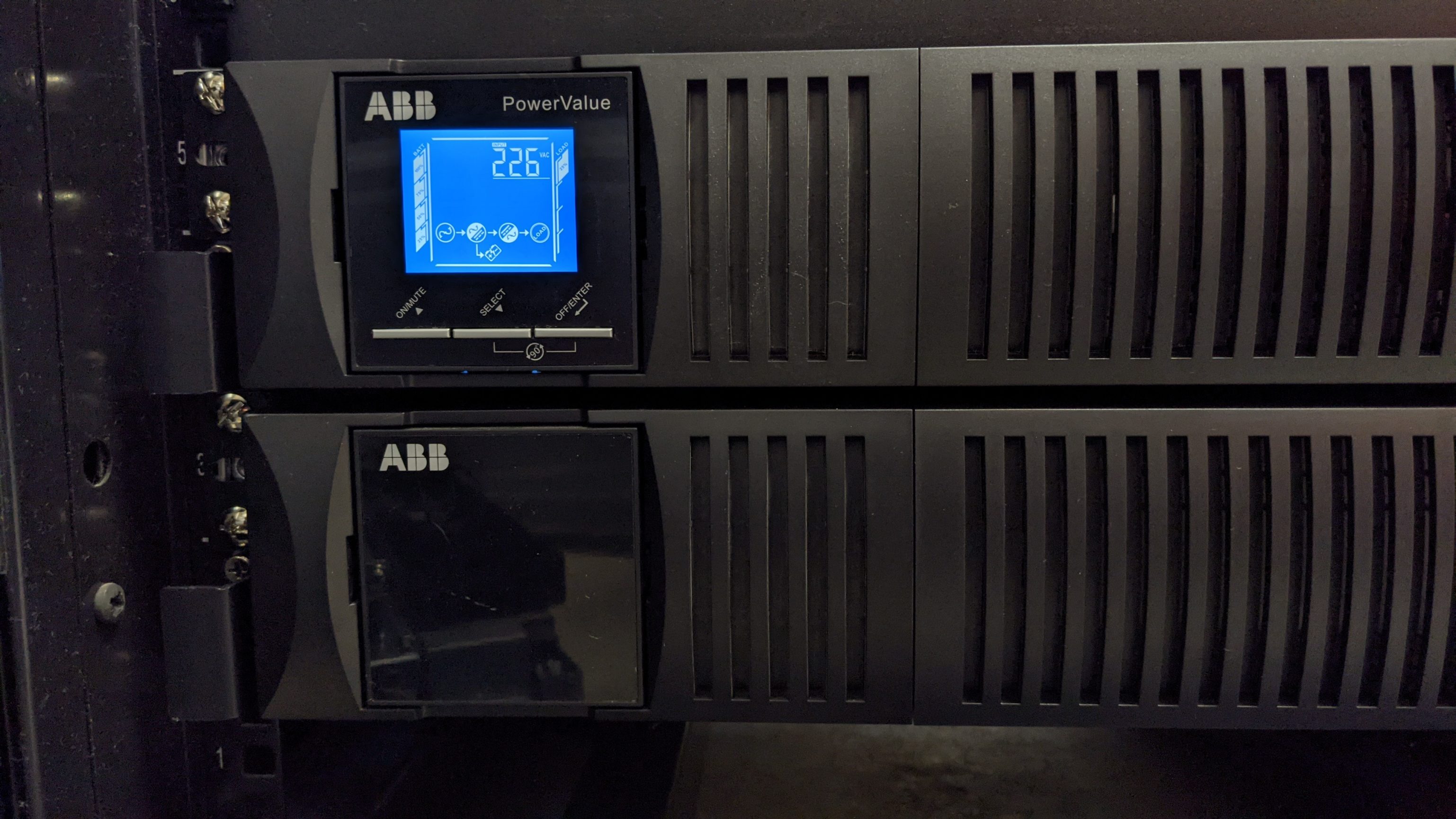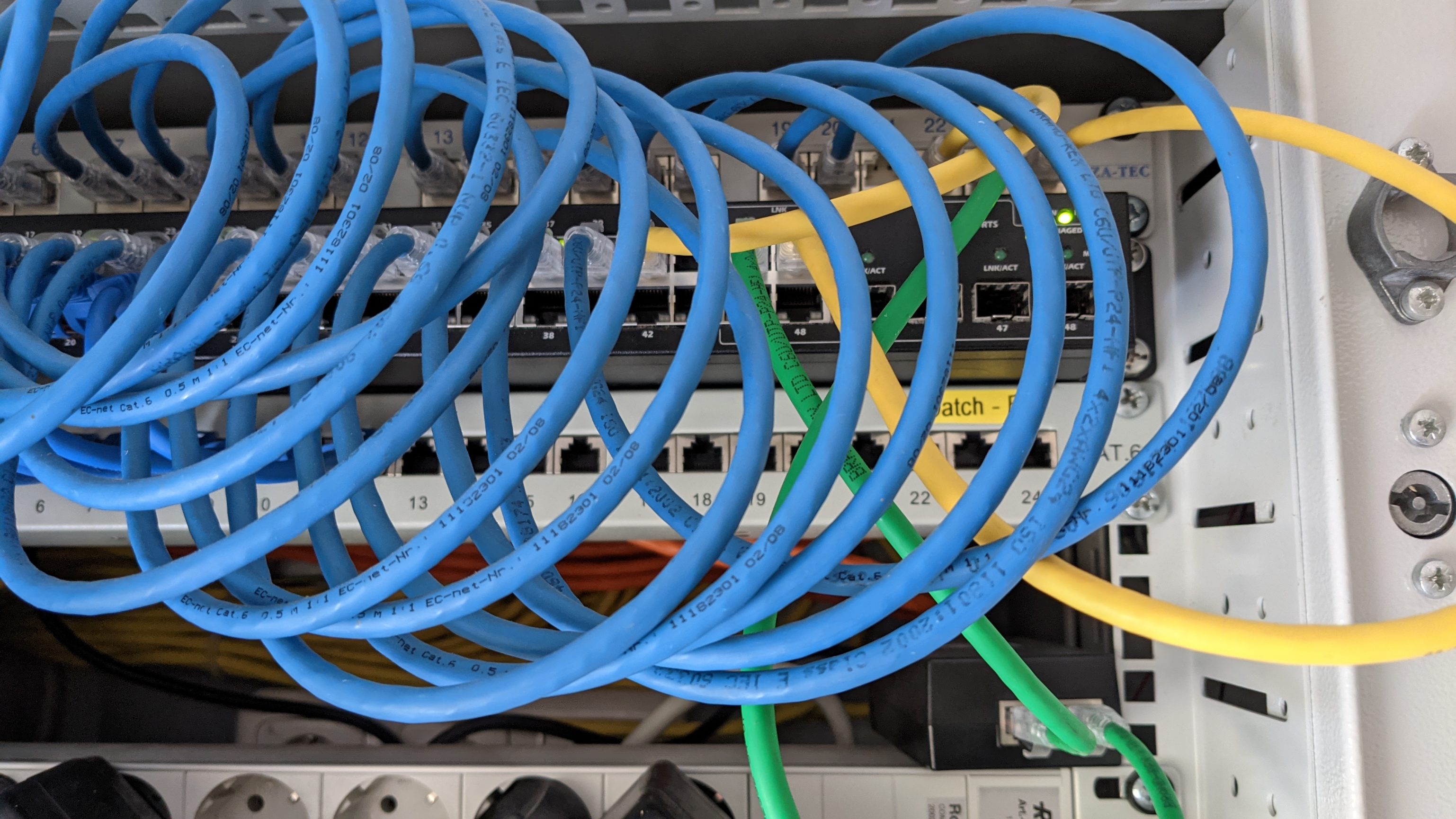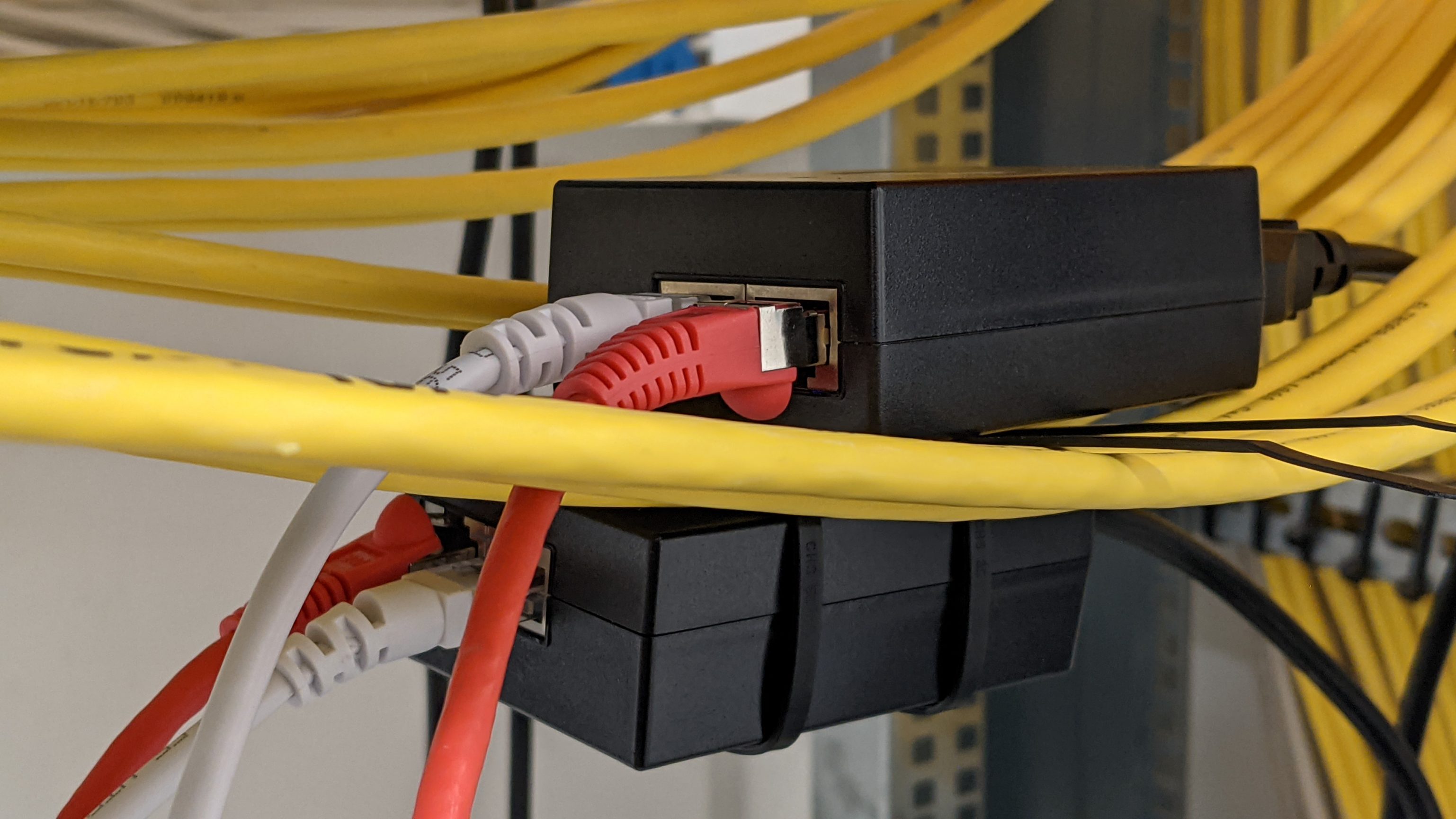Once upon a time, we lived in a world in which we could make the desires of our hearts entries in our budget appear before us almost instantly. Then strange things happened in this world, and we were made to wait: resource scarcity, supply chain problems, and sickness conspired to delay nearly everything.
An end to waiting
In January, I finally received equipment that I had ordered more than a year previously. Surely my sigh of relief was heard from one end of the valley to the other. For your amazement and delight, I present to you the before and after photos:
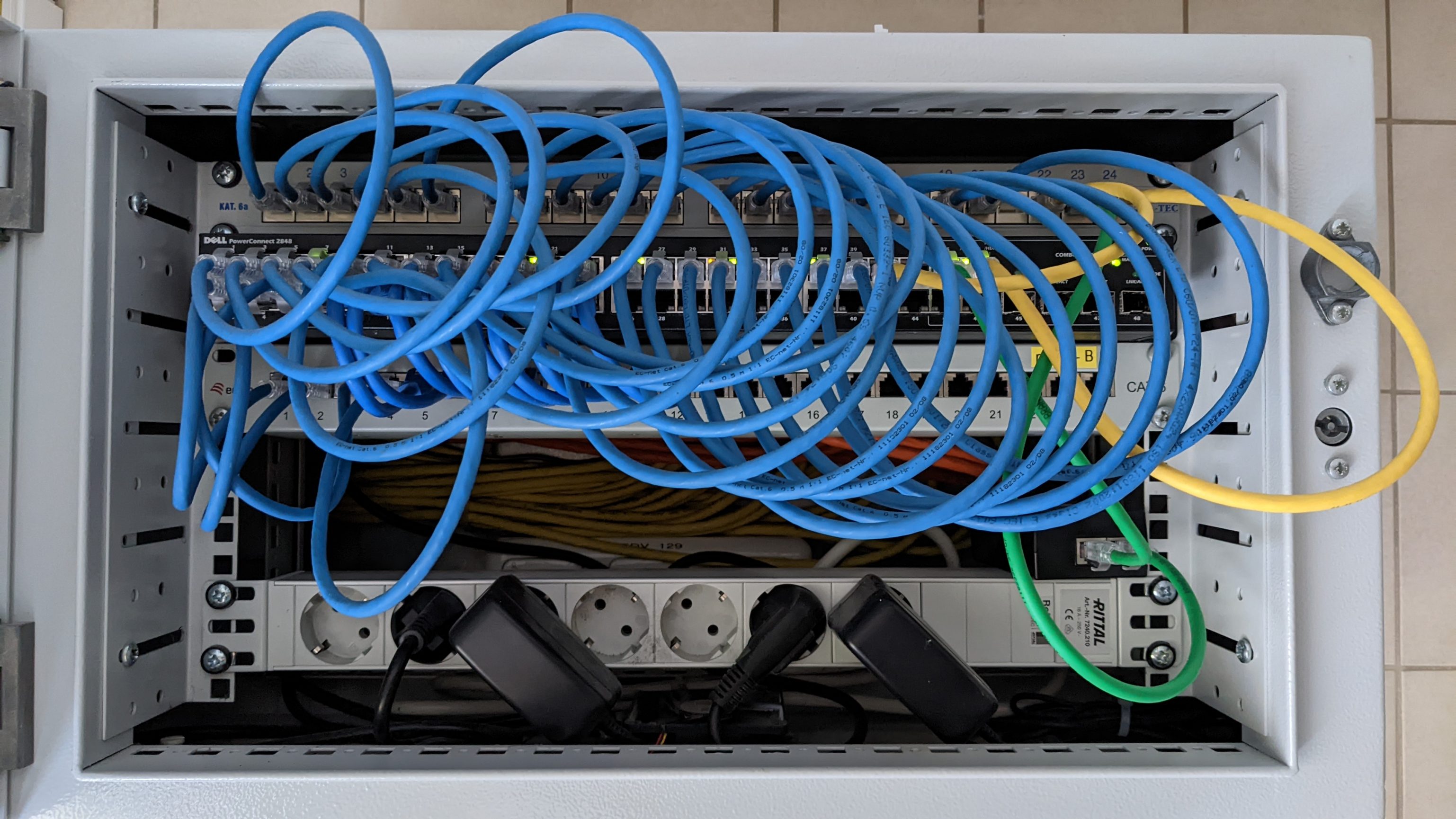
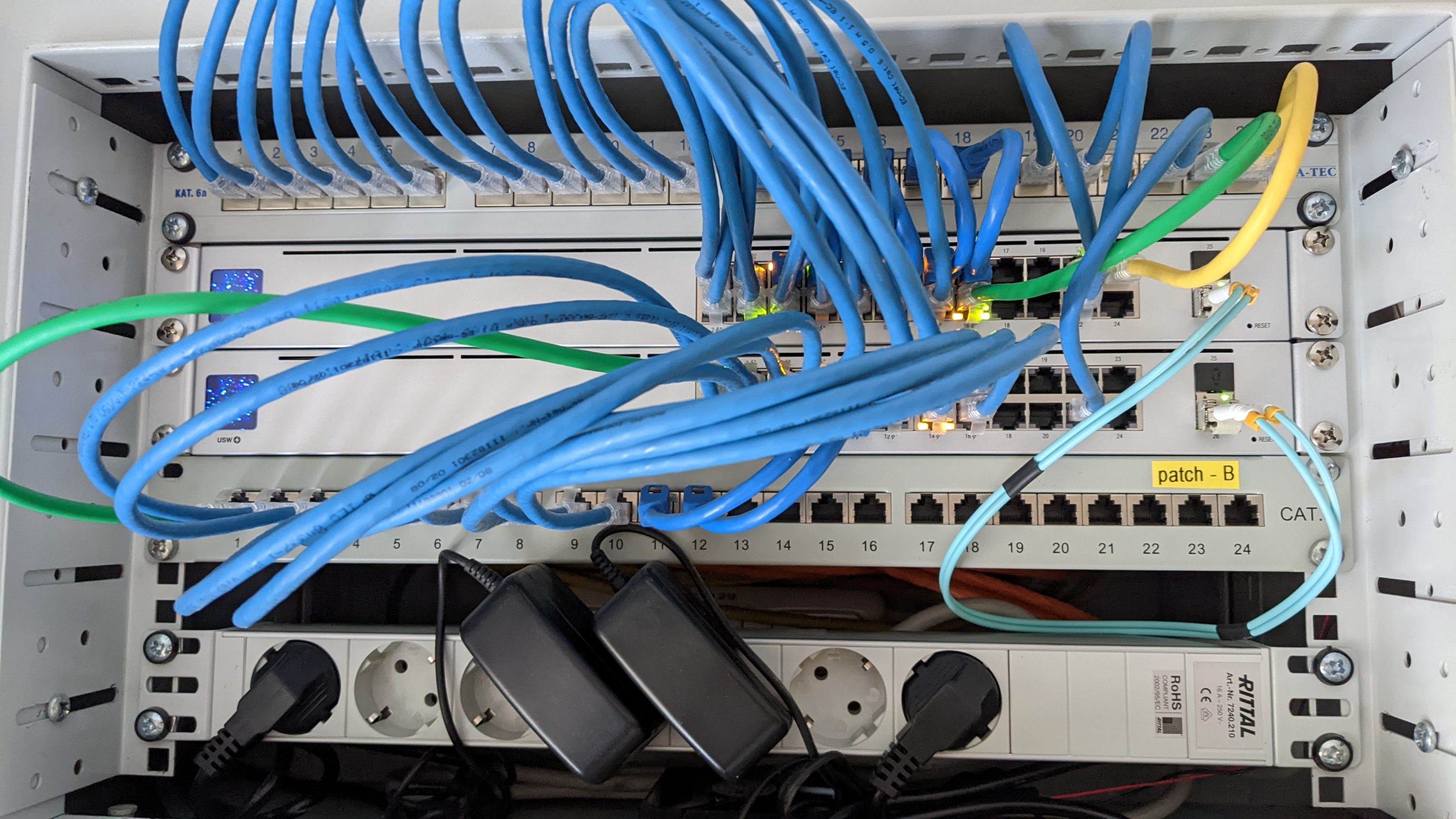
The marvel of it all has surely rendered you speechless, so I invite you to pause in your reading to recover.
Truly, these switches and their capabilities are far less important to you, to me, and to Wycliffe Germany than are the people they serve. These devices connect some dear people who play a vital role in Bible translation:
- Our prayer coordinator stays in touch with the missionaries of Wycliffe Germany so that we (staff, retirees, and friends) can pray in specific ways for our brothers and sisters out yonder. She also prepares material that is published more broadly in the quarterly magazine.
- Our public relations staff are responsible for that magazine, the website, and more. They visit churches, they design and staff exhibits for missions and youth conferences, and they create material that describes the work of Wycliffe and the milestones of success in Bible translation.
- Our personnel staff become the point of contact for people who express an interest in serving with Wycliffe, be it as a short-term helper or a long-term member. They are in regular contact with the men and women who are in that stage between being accepted as a candidate and being sent out to the place where they will serve. The individuals and families in service are also under their care.
The work that these people do involves a veritable flood of communication and collaboration: email messages, phone calls, chats, databases, and a gazillion files. All of that flows through one electronic medium or another. The switches reliably direct those flows of data. When I do my job right, all of it happens in the background, hopefully unnoticed.
Guarding against nothing
I expect that each of us locks the doors and windows in the hope that no one will even try to enter—or that, having examined the window or door, an ill-intentioned person will conclude that it is not worth the effort. Some of my activities over the past few months have focused on the elements of security that we hope never get put to the test:
- A backup server allows me to restore data if it has been lost. Data can be lost for reasons such as accidental deletion, disk failure, or data corruption. One of the latest threats of loss comes from ransomware, which locks away the data through encryption.
- With the potential threat of ransomware in mind, I have been fine-tuning our backup scheme to provide the best chance of protection and recovery.
- The server has aged, and I am researching a new one that will be able to serve Wycliffe for the next several years.
- Within the next month or two, we will be replacing the traditional locks in our administration building with electronic ones, which simplify access for the right people and confound access for the wrong people.
- The electronic locks and keys are managed through a system that I organize and oversee. It’s secured on a regular basis by the backup server I just mentioned.
- Our email system relegates suspicious messages to the spam folder and obviously malevolent ones to quarantine. The idea is, of course, that the recipient will not react inappropriately to the garbage contained in such messages and inadvertently breach the security of their account—or worse.
- Among the most despicable messages I see languishing (properly) in quarantine are those in which the sender rambles on and on about being “in complete control” of all of the recipient’s accounts and devices. The sender knows all about the recipient’s wicked internet habits. There’s just no hope for them but to pay the (anonymous) sender some amount of cryptocurrency. Otherwise, terrible things will happen. Why, they might even lower the temperature of the freezer and allow the ice cream to melt. It’s nothing personal, of course; the sender needs to make a living like everyone else.
- Ugh. These messages are designed to instill panic and to provoke a hasty, costly reaction. They are full of nothing but hot air. You know who’s not full of hot air and empty promises? Jesus. I’m not trying to draw an analogy here, but I’m reminded of the encounter described in Matthew 9:1-8, Mark 2:1-12, and Luke 5:17-26. (Pick your favorite account.) Jesus showed those present that his words were not empty. Personally, I find his words encouraging in my work.
Thanks for reading to the end. I hope that you can see how the work that I do supports and facilitates Bible translation in the places where members of Wycliffe Germany serve. Many of them work in challenging places, which is why I rarely give details. My work has its challenges, too. You face your own challenges in life. If you support our ministry financially, I don’t doubt that you’ve felt challenged on that point as well. Take encouragement in the knowledge that we serve a God who does not issue empty promises—and he has promised to always take care of his people. Katherine and I are thankful to you for generously taking care of us!
And now, I will sign off with something more amazing and delightful than a pair of switches:

